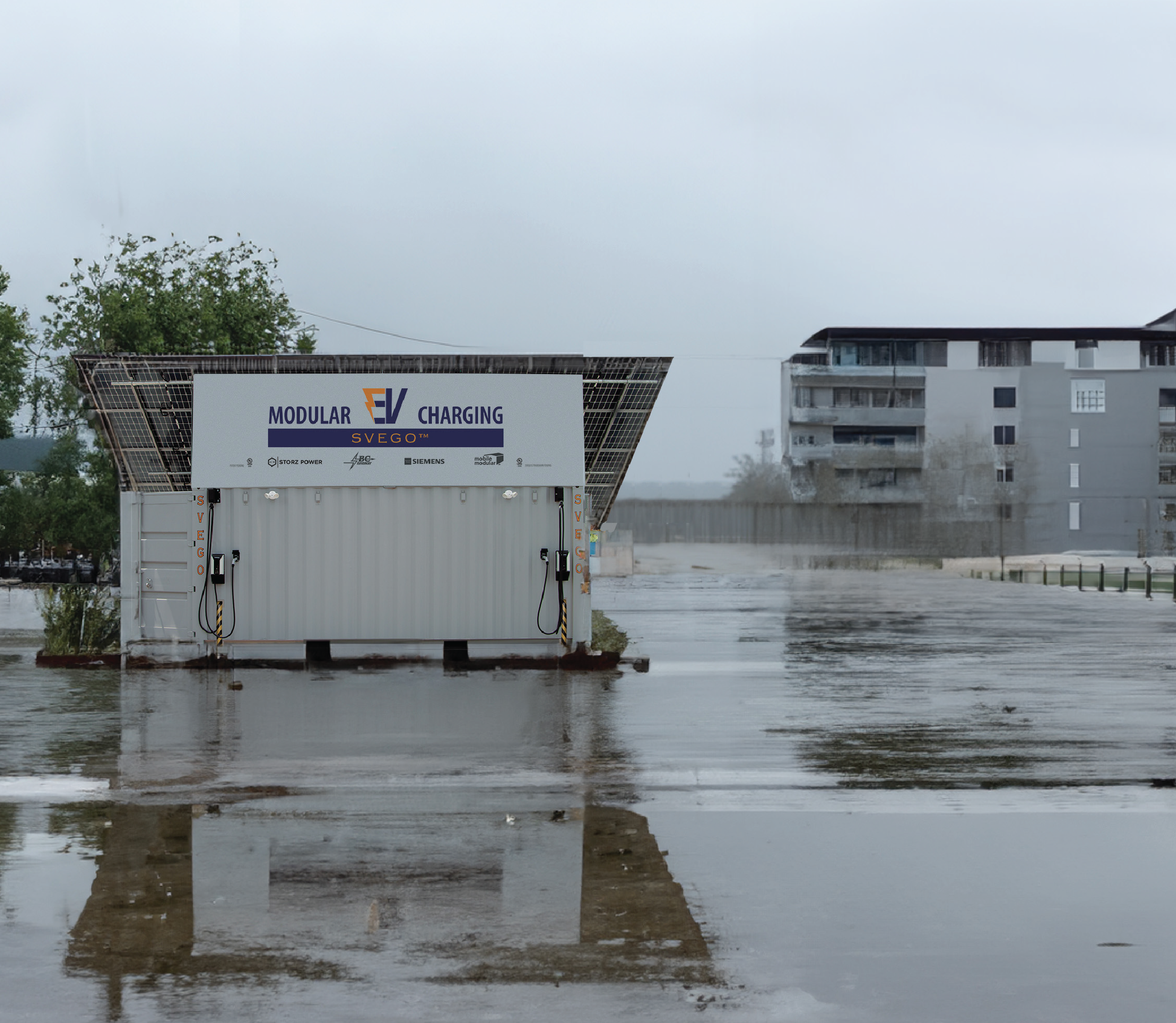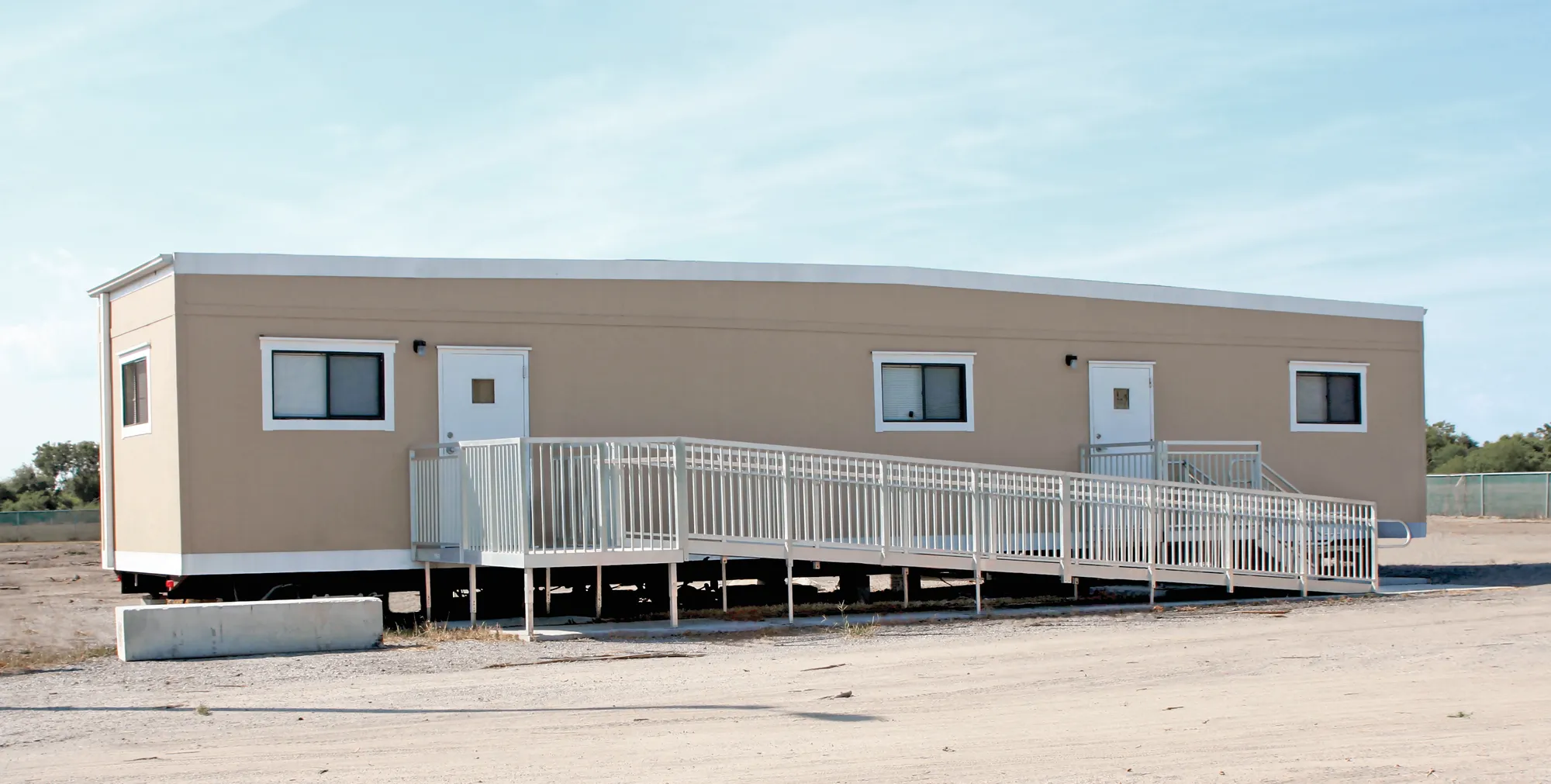Modular Space Solutions
What is Modular Construction?
Modular construction involves manufacturing parts of a building in a controlled factory for high-quality production. The prefabricated pieces are then used to quickly and efficiently construct modular buildings on a designated site. Modular construction can be used to build a variety of spaces including offices, healthcare facilities, restrooms, schools, and more.
What is a Module?
A module is an individual section of a modular building that is constructed in a climate-controlled factory off-site. This allows for identical prefabricated pieces to be constructed with minimal room for errors. The modules can then be stacked, placed next to each other, or placed end to end to create the custom size and design that someone is looking for to fit their needs.
Benefits Of Modular Construction Solutions
Quicker To Build Vs. Traditional Construction
Modular construction can be completed more quickly than traditional construction. During modular construction, the modules can be manufactured at the same time that the installation site is being surveyed and worked on. Because the modules are built in a factory instead of on-site, there is also less chance for weather-related delays. Having pre-constructed modules makes final construction a quick and easy process.
Eco-Friendly Construction
Modular construction is more environmentally friendly than traditional construction in many ways. With traditional construction sites, 30% of the delivered material turns into waste. During the manufacturing process in the factory, any excess material is recycled. The factory’s climate-controlled environment also eliminates high levels of moisture, improving air quality. Finished modular buildings that are temporary can also be recycled or relocated and reused again for other purposes.
Cost-Effective
Modular construction is a cost-effective solution. Because modular buildings utilize prefabricated structures, the installation is quicker, allowing for fewer workers needed during the process. A quicker build can also mean a quicker return on investment. When it comes to financing modular buildings, there are several flexible options to choose from, including short-term and long-term leases. Business owners who are expecting to need the space for over five years might consider buying a modular building instead of leasing for a more cost-effective solution.
Greater Design Flexibility
Modular buildings are highly customizable, allowing unique features for the interior with everything someone might need. Customizable design elements include the structure’s material, flooring, ceilings, walls, and the overall size and layout of the building. Other features and amenities can be added depending on a business’s needs, such as restrooms, kitchens, and outlets. The exterior can also be customized to match the look of any existing building.
High-Quality & Durable
Since modular buildings are constructed in a factory off-site, quality control is much higher, enhancing production consistency. Modular buildings are designed with strong materials and steel frames in order to stand up to the demands of transportation and installation.
Great For Remote Locations
Modular construction is a convenient option for building in remote locations where there aren’t any nearby construction trades. In remote areas, modular buildings can be used as offices, medical clinics, schools, and other structures.
Types Of Modular Solutions
Mobile Modular has experience working with a variety of industries. Some of the most common solutions that modular construction is used for include:
- Modular office solutions: Modular construction can be used for office complexes. Modular office spaces can be used as temporary solutions if the main office is under construction or in the process of moving. Modular offices can also be permanent, providing more space during company growth.
- Modular school solutions: Modular construction is often used in the education space to provide extra classrooms, labs, libraries, offices, a cafeteria, or even entire schools. Modular classrooms can be used temporarily during disasters that may have damaged the original building, as swing spaces during the renovation of an existing school, or they can be used as permanent expansions to the school.
- Modular construction trailers: Need an office you can place on a construction site and remove once the job is done? Modular jobsite trailers are the perfect solution.
- Modular church solutions: Modular buildings can be used as space for places of worship for communities. They also offer space for classrooms, offices, and meeting rooms.
- Modular healthcare solutions: Healthcare systems can benefit from modular construction with additional space for hospitals, primary care clinics, dental clinics, urgent care facilities, labs, animal hospitals, and more. Modular construction can offer extra space in emergencies, such as the COVID-19 pandemic.
Why Choose Mobile Modular
Mobile Modular is an award-winning commercial construction company with years of experience in modular buildings. Mobile Modular has helped a range of industries find the solutions they need through modular construction, including education, healthcare, religious facilities, commercial, industrial, and government.
Contact Mobile Modular today to find your modular space solution.
Mobile Modular's Process
Mobile Modular is highly experienced in every step of the modular construction process. We’re here to ensure that the entire process goes as smoothly as possible and is customized to meet your company’s unique needs.
- Design: The first step in the modular construction process is to design the space based on your company’s unique needs. You will be assigned a commercial construction general contractor to work with to better understand your needs and budget. Design decisions will be based on your personal preference, finances, materials, and the size of the site.
- Construction: The construction process involves site development and module fabrication. Once the design is complete, the foundation can be laid out at the installation site. During this process, the modules are fabricated, including the frame, floors, walls, and ceilings.
- Transportation And Installation: Once the modules are completed, they are ready to be transported to the site. After the modules arrive, there is minimal construction needed so they can be occupied within weeks.





